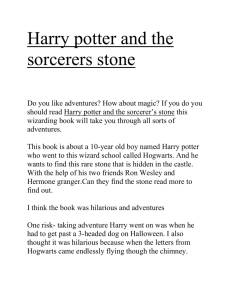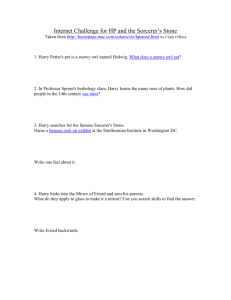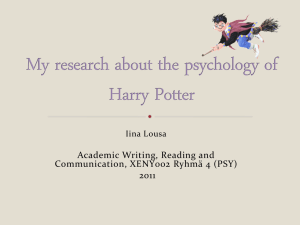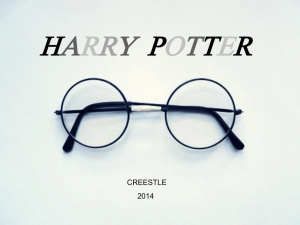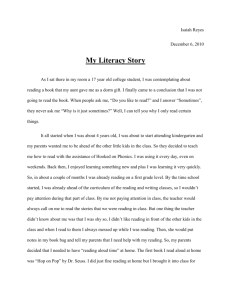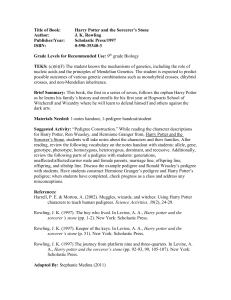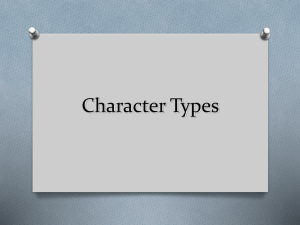Harry Potter and the Sorcerer's Stone Book Review
advertisement
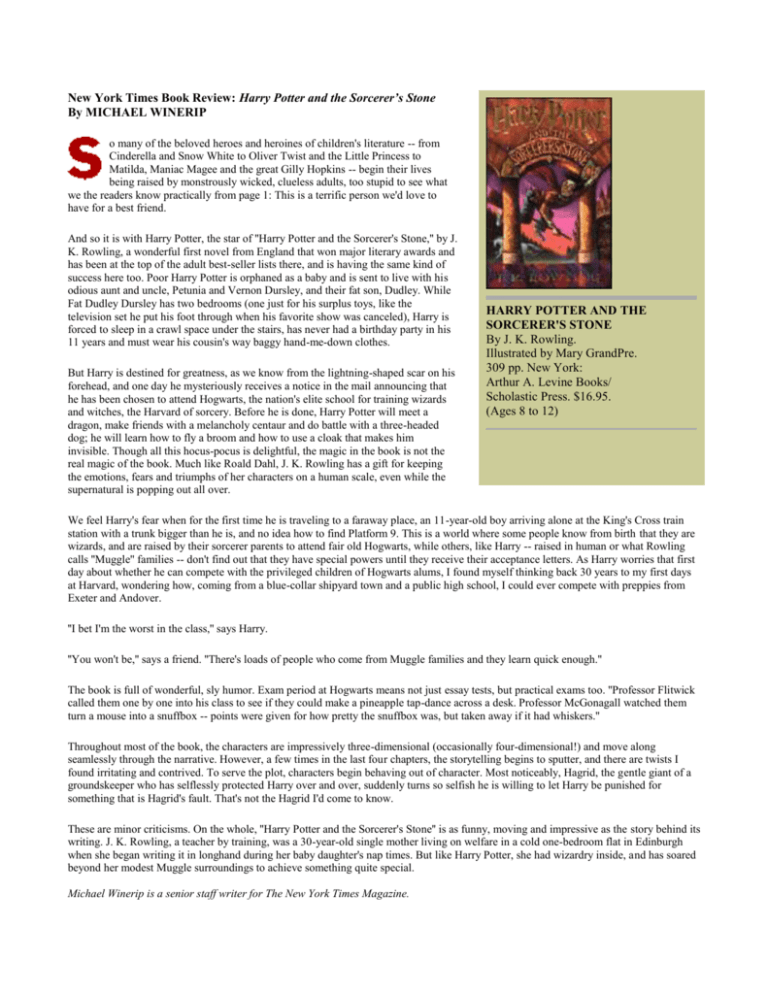
New York Times Book Review: Harry Potter and the Sorcerer’s Stone By MICHAEL WINERIP o many of the beloved heroes and heroines of children's literature -- from Cinderella and Snow White to Oliver Twist and the Little Princess to Matilda, Maniac Magee and the great Gilly Hopkins -- begin their lives being raised by monstrously wicked, clueless adults, too stupid to see what we the readers know practically from page 1: This is a terrific person we'd love to have for a best friend. And so it is with Harry Potter, the star of ''Harry Potter and the Sorcerer's Stone,'' by J. K. Rowling, a wonderful first novel from England that won major literary awards and has been at the top of the adult best-seller lists there, and is having the same kind of success here too. Poor Harry Potter is orphaned as a baby and is sent to live with his odious aunt and uncle, Petunia and Vernon Dursley, and their fat son, Dudley. While Fat Dudley Dursley has two bedrooms (one just for his surplus toys, like the television set he put his foot through when his favorite show was canceled), Harry is forced to sleep in a crawl space under the stairs, has never had a birthday party in his 11 years and must wear his cousin's way baggy hand-me-down clothes. But Harry is destined for greatness, as we know from the lightning-shaped scar on his forehead, and one day he mysteriously receives a notice in the mail announcing that he has been chosen to attend Hogwarts, the nation's elite school for training wizards and witches, the Harvard of sorcery. Before he is done, Harry Potter will meet a dragon, make friends with a melancholy centaur and do battle with a three-headed dog; he will learn how to fly a broom and how to use a cloak that makes him invisible. Though all this hocus-pocus is delightful, the magic in the book is not the real magic of the book. Much like Roald Dahl, J. K. Rowling has a gift for keeping the emotions, fears and triumphs of her characters on a human scale, even while the supernatural is popping out all over. HARRY POTTER AND THE SORCERER'S STONE By J. K. Rowling. Illustrated by Mary GrandPre. 309 pp. New York: Arthur A. Levine Books/ Scholastic Press. $16.95. (Ages 8 to 12) We feel Harry's fear when for the first time he is traveling to a faraway place, an 11-year-old boy arriving alone at the King's Cross train station with a trunk bigger than he is, and no idea how to find Platform 9. This is a world where some people know from birth that they are wizards, and are raised by their sorcerer parents to attend fair old Hogwarts, while others, like Harry -- raised in human or what Rowling calls ''Muggle'' families -- don't find out that they have special powers until they receive their acceptance letters. As Harry worries that first day about whether he can compete with the privileged children of Hogwarts alums, I found myself thinking back 30 years to my first days at Harvard, wondering how, coming from a blue-collar shipyard town and a public high school, I could ever compete with preppies from Exeter and Andover. ''I bet I'm the worst in the class,'' says Harry. ''You won't be,'' says a friend. ''There's loads of people who come from Muggle families and they learn quick enough.'' The book is full of wonderful, sly humor. Exam period at Hogwarts means not just essay tests, but practical exams too. ''Professor Flitwick called them one by one into his class to see if they could make a pineapple tap-dance across a desk. Professor McGonagall watched them turn a mouse into a snuffbox -- points were given for how pretty the snuffbox was, but taken away if it had whiskers.'' Throughout most of the book, the characters are impressively three-dimensional (occasionally four-dimensional!) and move along seamlessly through the narrative. However, a few times in the last four chapters, the storytelling begins to sputter, and there are twists I found irritating and contrived. To serve the plot, characters begin behaving out of character. Most noticeably, Hagrid, the gentle giant of a groundskeeper who has selflessly protected Harry over and over, suddenly turns so selfish he is willing to let Harry be punished for something that is Hagrid's fault. That's not the Hagrid I'd come to know. These are minor criticisms. On the whole, ''Harry Potter and the Sorcerer's Stone'' is as funny, moving and impressive as the story behind its writing. J. K. Rowling, a teacher by training, was a 30-year-old single mother living on welfare in a cold one-bedroom flat in Edinburgh when she began writing it in longhand during her baby daughter's nap times. But like Harry Potter, she had wizardry inside, and has soared beyond her modest Muggle surroundings to achieve something quite special. Michael Winerip is a senior staff writer for The New York Times Magazine.


